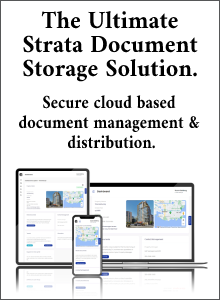
10 Best Practices For Managing Strata Documents
If you are a strata owner living in British Columbia, you know how important it is to manage your strata documents efficiently. Strata documents are crucial for the proper functioning of a strata corporation, and they contain vital information about the strata property, finances, and rules and regulations. In this blog post, we will share the 10 best practices for managing strata documents that every strata owner in British Columbia should follow. By implementing these practices, you can ensure that your strata corporation operates smoothly, and you stay compliant with the laws and regulations governing strata properties in BC.
1. Implement an organized filing system
Having a clear and organized filing system is a vital aspect of effectively managing strata documents. It is crucial to establish a consistent approach for storing and organizing property management documents in a manner that is easily accessible when required. Properly managing strata documents involves creating a folder structure that makes sense for your strata corporation, labeling folders and files appropriately, and regularly reviewing and purging documents that are no longer needed. By implementing an organized filing system, you can streamline the process of managing strata documents and ensure that the right documents are always at your fingertips when you need them.
The first step in creating an organized filing system is to decide on a format for storing your documents. You can choose to store them in hard copy or electronically, or a combination of both. Once you have decided on a format, you can then create a folder structure that makes sense for your strata corporation. This folder structure should be consistent across all documents and should be intuitive to follow.
It’s important to label your folders and files appropriately, using clear and concise naming conventions. This helps you quickly locate the document you need without having to sift through a large number of files. For example, you can create folders for financial documents, meeting minutes, bylaws, and contracts, and then label each file within those folders with a clear and descriptive name.
2. Use Cloud Storage
Cloud storage provides several advantages, including easy accessibility, security, and convenience. By using cloud storage, you can store all your strata documents in one place, making it easy to access them from any device with an internet connection. This can be especially useful for strata managers who need to access documents while on the go or from a remote location.
Another significant benefit of cloud storage is its security features. Most cloud storage providers offer robust security measures to protect your data from cyber threats, such as encryption, firewalls, and two-factor authentication. Additionally, cloud storage reduces the risk of data loss, as it provides automatic backups, so even if your computer or device crashes, you won’t lose your important strata documents.
When using cloud storage for managing strata documents, it’s important to choose a reputable provider and ensure that your documents are securely stored. You should also establish a consistent folder structure and labeling system to organize your documents, making it easier to locate them when needed.
3. Regularly back up documents
Regular backups can be done in different ways, including using external hard drives, cloud storage, or other digital backup solutions. It’s essential to establish a consistent schedule for backing up your documents, such as daily, weekly, or monthly, depending on your needs and the frequency of document changes.
When backing up documents, it’s important to include all relevant files, including financial documents, meeting minutes, bylaws, and contracts. You should also ensure that the backup process is automated, so you don’t forget to do it manually. Automated backups can help you save time and ensure that all important documents are regularly backed up.
It’s also important to store backups in a secure location, such as an off-site storage facility or cloud storage. This ensures that if there is a physical disaster like a fire or flood, your documents will still be safe and accessible.
4. Adhere to record retention policies
Adhering to record retention policies is an essential best practice for managing strata documents. It is crucial to be aware of the legal requirements for retaining documents and ensure that they are kept for the required amount of time in accordance with the Strata Property Act of British Columbia.
The Strata Property Act of British Columbia mandates specific retention periods for different types of strata documents. For example, financial documents such as accounting records, budgets, and financial statements should be kept for at least six years. Meeting minutes, bylaws, and rules should be retained indefinitely, while contracts and other legal documents should be retained for ten years after the contract’s end date.
It’s important to ensure that your strata corporation is complying with these retention requirements to avoid legal penalties and ensure that you have the documents you need when you need them. You can establish a clear policy for document retention that outlines the types of documents you need to retain and the retention periods for each. This policy should be communicated to all stakeholders and followed consistently across the organization.
Properly managing strata documents involves maintaining accurate records and having a reliable system for retaining and disposing of them when necessary. It’s also essential to keep documents organized and easily accessible to those who need them, whether it’s strata managers, board members, or residents.
5. Digitize and automate document management processes
Digitizing and automating document management processes is a best practice that can help strata corporations manage their documents more efficiently. By leveraging technology to manage strata documents, you can reduce the risk of manual errors and increase efficiency.
Digitizing documents involves converting physical documents into electronic format, making them easier to access, search, and share. This can be done using scanning technology, which converts hard copies into digital files that can be stored in a central location. Once digitized, you can establish a consistent naming convention and folder structure to organize your documents, making it easier to search and retrieve them.
Automating document management processes involves using software tools to manage and automate document workflows, such as document routing, approvals, and notifications. This can help streamline the document management process, reduce delays and errors, and increase productivity.
Using digital signatures and document management software can also help automate document management processes. With digital signatures, you can sign documents electronically, saving time and eliminating the need to print, sign, and scan physical documents. Document management software can help automate workflows, track document versions, and ensure compliance with legal requirements and retention policies.
6. Ensure document security
Digitizing and automating document management processes is a best practice that can help strata corporations manage their documents more efficiently. By leveraging technology to manage strata documents, you can reduce the risk of manual errors and increase efficiency.
Digitizing documents involves converting physical documents into electronic format, making them easier to access, search, and share. This can be done using scanning technology, which converts hard copies into digital files that can be stored in a central location. Once digitized, you can establish a consistent naming convention and folder structure to organize your documents, making it easier to search and retrieve them.
Automating document management processes involves using software tools to manage and automate document workflows, such as document routing, approvals, and notifications. This can help streamline the document management process, reduce delays and errors, and increase productivity.
Document management software can help automate workflows, track document versions, and ensure compliance with legal requirements and retention policies.
7. Use electronic signatures
Using electronic signatures is a best practice for managing strata documents, especially when it comes to signing and approving documents like Form B and Form F certificates. Electronic signatures can streamline the document approval process, making it faster and more convenient for strata corporations.
Electronic signatures involve using digital signatures instead of handwritten signatures. They are legally binding and recognized by law in many jurisdictions, including British Columbia. Electronic signatures can be applied to documents in several ways, including through software tools, mobile apps, and cloud-based services.
By using electronic signatures, strata corporations can eliminate the need for physical signatures, saving time and reducing errors. Electronic signatures also allow multiple parties to sign the same document remotely, making it easier to obtain signatures from all required parties in a timely manner.
Using electronic signatures can also help track document versions and ensure that the right people have signed the document. This can help reduce the risk of errors, delays, and legal disputes.
8. Establish a clear approval process
Establishing a clear approval process is an essential best practice for managing strata documents effectively. A clear approval process ensures that documents are approved and signed by the right individuals, reducing the risk of errors, delays, and legal disputes.
The first step in establishing a clear approval process is to identify who needs to sign or approve each type of document. This can include board members, strata managers, and other stakeholders, depending on the document’s type and purpose.
Once you have identified the individuals who need to sign or approve the document, you can establish a clear process for obtaining their signatures. This can include setting up a specific order for signatures, establishing a timeline for signatures, and using electronic signatures to speed up the process.
It’s also important to establish clear guidelines for approving and signing documents. This includes setting up a process for reviewing documents, ensuring that they comply with legal requirements and retention policies, and verifying the accuracy of the information in the document.
In addition to establishing a clear approval process, it’s also essential to communicate this process to all stakeholders. This includes board members, strata managers, and residents. By communicating the approval process clearly, you can ensure that everyone is on the same page and can follow the process correctly.
9. Regularly review and update documents
Regularly reviewing and updating documents is an essential best practice for managing strata documents effectively. By reviewing and updating documents on a regular basis, strata corporations can ensure that their documents are up-to-date, accurate, and comply with legal requirements.
The first step in reviewing documents is to establish a schedule for document review. This can include reviewing documents annually or semi-annually, depending on the type of document and its importance. During the review process, it’s essential to verify that the documents are accurate and up-to-date.
During the review process, you can also identify any gaps or missing information in the documents. This can help ensure that all required information is included in the documents and that they are comprehensive and accurate.
Once you have completed the document review process, it’s important to update the documents as necessary. This includes adding new information, removing outdated information, and correcting any errors or inaccuracies.
By keeping documents up-to-date and accurate, strata corporations can ensure compliance with legal requirements, reduce the risk of errors, and increase efficiency.
10. Provide training to staff
Providing training to staff is a best practice for managing strata documents effectively. If you operate a strata management business, it’s important to train your staff on best practices for managing documents so they understand the importance of proper document management and how to handle documents correctly.
Training can include educating staff on the legal requirements for document management, such as the retention periods for different types of documents, and the importance of document security. It can also include training on how to organize and manage documents effectively, including establishing a folder structure and labeling system, and using software tools to automate workflows.
By providing training to staff, you can ensure that everyone in your organization understands the importance of proper document management and how to handle documents correctly. This can help reduce errors, increase efficiency, and ensure compliance with legal requirements and retention policies.
Training can also help staff stay up-to-date with changes in document management practices and technology. For example, training can be provided on new software tools for managing documents or new legal requirements for document retention.
Not Legal Advice - The material provided on the StrataPress website is for general information purposes only. It is not intended to provide legal advice or opinions of any kind and may not be used for professional or commercial purposes. No one should act, or refrain from acting, based solely upon the materials provided on this website, any hypertext links or other general information without first seeking appropriate legal or other professional advice. These materials may have no evidentiary value and should be checked against official sources before they are used for professional or commercial purposes. Your use of these materials is at your own risk.



